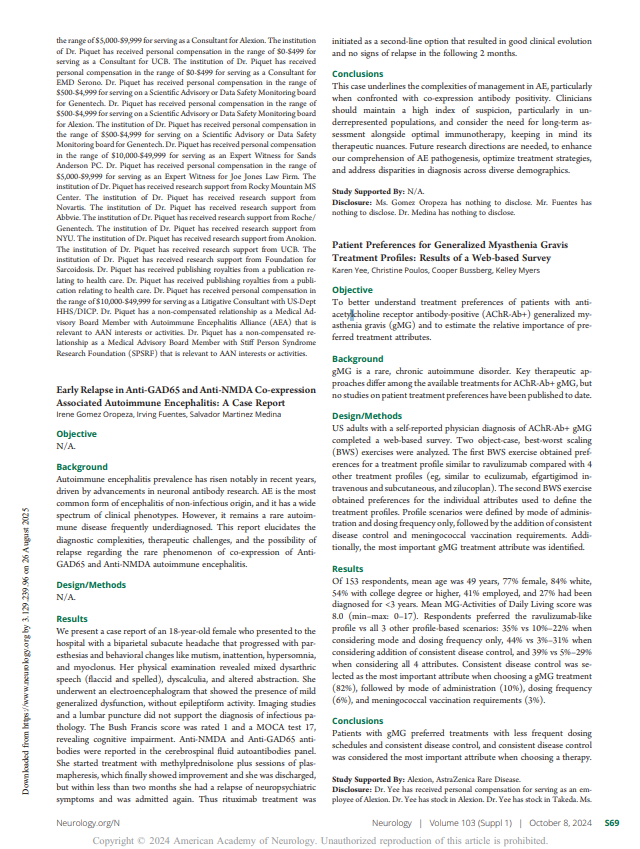Patient Preferences for Generalized Myasthenia Gravis Treatment Profiles: Results of a Web-based Survey
October 2024
Abstract
Objective
To better understand treatment preferences of patients with anti-acetylcholine receptor antibody-positive (AChR-Ab+) generalized myasthenia gravis (gMG) and to estimate the relative importance of preferred treatment attributes.
Background
gMG is a rare, chronic autoimmune disorder. Key therapeutic approaches differ among the available treatments for AChR-Ab+ gMG, but no studies on patient treatment preferences have been published to date.
Design/Methods
US adults with a self-reported physician diagnosis of AChR-Ab+ gMG completed a web-based survey. Two object-case, best-worst scaling (BWS) exercises were analyzed. The first BWS exercise obtained preferences for a treatment profile similar to ravulizumab compared with 4 other treatment profiles (eg, similar to eculizumab, efgartigimod intravenous and subcutaneous, and zilucoplan). The second BWS exercise obtained preferences for the individual attributes used to define the treatment profiles. Profile scenarios were defined by mode of administration and dosing frequency only, followed by the addition of consistent disease control and meningococcal vaccination requirements. Additionally, the most important gMG treatment attribute was identified.
Results
Of 153 respondents, mean age was 49 years, 77% female, 84% white, 54% with college degree or higher, 41% employed, and 27% had been diagnosed for <3 years. Mean MG-Activities of Daily Living score was 8.0 (min–max: 0–17). Respondents preferred the ravulizumab-like profile vs all 3 other profile-based scenarios: 35% vs 10%–22% when considering mode and dosing frequency only, 44% vs 3%–31% when considering addition of consistent disease control, and 39% vs 5%–29% when considering all 4 attributes. Consistent disease control was selected as the most important attribute when choosing a gMG treatment (82%), followed by mode of administration (10%), dosing frequency (6%), and meningococcal vaccination requirements (3%).
Conclusions
Patients with gMG preferred treatments with less frequent dosing schedules and consistent disease control, and consistent disease control was considered the most important attribute when choosing a therapy.

